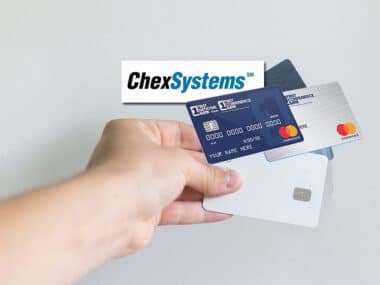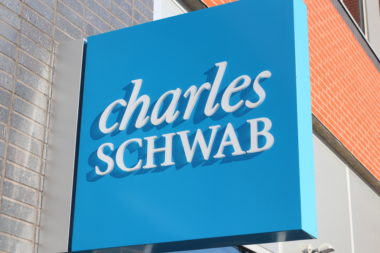The right bank can help you make the most of your money. From competitive interest rates and low fees, to loans and investment products that help you mean your financial goals, banks are constantly changing their offerings to entice new customers.
Many people, though, are opting to forgo traditional banking in favor of joining a credit union. Unlike banks, which operate to make a profit, credit unions are nonprofit organizations owned by their members. Joining a credit union requires that you meet certain criteria, such as residency in a particular city, but the benefits typically include a higher level of customer service, lower fees for banking products, and more affordable options for loans.
In many ways, credit unions work the same as traditional banks, offering savings and checking accounts, debit and credit cards, ATMs, and other services. And like most banks, credit unions offer online banking. Some allow members to join online, even if they live outside the immediate area. If you don’t qualify to join a local credit union, or there aren’t any in your area, an online credit union might be the perfect solution.
Table of Contents
Go Online
Chances are, if there are credit unions in your area, you can join them and open an account online. If you know of a credit union in your area, visit their website to determine if you qualify and how to sign up. Or, use an online credit union locator to search for options in your state or city and review the membership criteria.
If your local area doesn’t have any options, there are some credit unions that allow members from anywhere. Typically, these credit unions will accept applications from anyone who makes a donation to a specific charitable organization, or joins an organization. For example, a $5 charitable donation is all that’s needed to join the Alliant and Connexus credit unions, while First Tech Federal Credit Union asks for an $8 membership to the Financial Fitness Association.
When evaluating online credit unions, there are a few specific points to consider.
- Safety: Credit unions are insured by the National Credit Union Association (NCUA), which is similar to the FDIC. Working with an NCUA member ensures your money (up to $250,000) is safe in the event that the credit union fails.
- Services: Most credit unions are part of a large ATM network, allowing you to access your money when you need it. Some also have branch offices. Before you sign up, know exactly how you will be able to manage your money. For example, will you be able to deposit cash into your account? Many online banks do not accept cash deposits, so you’ll need to have a plan for managing them. A variety of account types to help you maximize your savings is also important.
- Fees: Credit unions are known for their low fees, but there may be some costs associated with your account. Compare accounts in terms of minimum balance requirements, overdraft fees, ATM fees, and account maintenance fees. One area to focus on is ATM fees, as most online credit unions offer reimbursement of some or all ATM fees.
- Interest rates: In general, credit union interest rates on savings and checking accounts are higher than those offered by banks. Review the interest rate offers and any terms and conditions associated with them.
- Additional products: If you’re in the market for a loan, review the credit union’s products. It may be possible, for instance, to refinance an existing loan for a lower rate as a member.
Credit Union Membership
In most cases, when you join an online credit union, you get the same benefits that you would if you join locally or in a brick-and-mortar location. You will need to prove that you qualify to join, and make an initial deposit. From there, your account will work as any other bank account.
To qualify to join a credit union, you need to meet specific criteria. Some of the most common qualifications include:
- Living, working, or attending school or church in a designated area (city, county, state);
- Working for a specific employer;
- Belonging to a professional organization;
- Working in a specific industry (e.g., teaching or nursing);
- Family members are already members;
- Belonging to a specific religion or religious organization;
- Attending or previously attended a specific school;
- Group membership, such as a homeowner’s association.
Besides membership criteria, what makes a credit union different from a traditional bank is its nonprofit status. The institution is governed by a board of directors that represents the members, who have a voice in how the organization is run. As a member, you’re effectively a co-owner of the credit union. Any profits earned are returned to the members in the form of low fees, high interest rates, and more competitive loan rates.
Set Up Your Account
Setting up an online account with a credit union is typically very simple. You’ll need to provide basic information (name, address, phone number, email address) and your Social Security number. Although credit unions don’t necessarily run credit checks on applicants, they may conduct a background review via ChexSystems, which reports your banking history including bounced checks and overdrafts.
Online credit unions typically require applicants to confirm their identity as well. You may be asked to upload an image of your photo identification or complete other tasks to prove your identity. You’ll also need to prove your eligibility for membership.
Use Your Account
Once your online credit union account is up and running, it’s up to you to make the most of it. Some ways to do that include:
- Make automatic savings account deposits: Credit unions often have competitive savings rates, so take advantage of them by setting up automatic savings deposits. You may be able to transfer money directly from your checking account on certain days, or direct deposit a portion of your paycheck into savings.
- Use direct deposit: Some banks offer incentives for having your paycheck directly deposited, but even if yours doesn’t, direct deposit saves time and ensures your money is there when you need it.
- Enable automatic alerts: If your online account offers alerts, enable them to notify you when your balance reaches a certain amount, you’ve made certain transactions, or when money arrives in your account.
- Set up overdraft protection: Some credit unions allow customers to protect themselves from overdrafts by limiting when transactions will be approved, or automatically transferring money from savings to checking to cover overdrafts.
- Watch your fees: If your credit union charges fees, take steps to avoid them. Use overdraft protection tools and direct deposit, and keep your daily balance above the minimum if necessary.
- Use ATMs sparingly: If you need to get cash, choose an in-network ATM, preferably one with low fees. Keep track of the fees you pay so you don’t exceed reimbursement limits.
Online Credit Unions
Although there are a number of online credit unions to choose from, here are a few options and what you can expect.
Alliant Credit Union
Alliant Credit Union serves employees of Alliant and their families, employees of organizations Alliant services, people in the Chicago area, and members of qualifying organizations. However, anyone who doesn’t meet that criteria can join if they become a member of Foster Care to Success and pay the $5 membership fee.
As a member of Alliant Credit Union, you can open interest bearing checking and savings accounts, or apply for home and auto loans at low rates. The federally insured credit union also offers retirement investment accounts. The initial deposit requirement is only $5, and there are no fees if you elect to receive electronic statements.
The Alliant app allows you to make deposits and transfers and set up online bill payment, and you can receive 24/7 customer service over the phone. If you happen to be in the Chicago area, there is one physical branch there you can visit.
Consumers Credit Union
Another Chicago-based credit union, Consumers Credit Union allows anyone to join. The only requirement is a $5 membership in the Consumers Cooperative Association. They have multiple branches in the Chicago area, and participate in shared branching with hundreds of other credit unions nationwide. This means that members have the flexibility to bank online or visit a local credit union branch for their needs.
Consumers Credit Union offers some of the most competitive interest rates on checking accounts anywhere, up to 5.09% annual percentage yield (APY) on balances up to $10,000 if you spend $1,000 per month or more with a CCU credit card. If you only use a debit card, the APY is 3.09% if you spend $100 per month and have at least $500 in direct or Automated Clearing House (ACH) deposits. CCU also offers savings accounts, business banking, credit cards, and loans.
Image Source: https://depositphotos.com/





